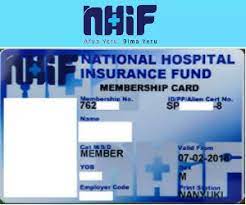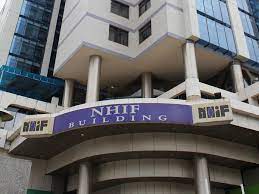Parliament has shot down a proposed law that had sought to make it compulsory for every Kenyan above 18 years to contribute to the National Hospital Insurance Fund (NHIF), handing a reprieve to poor households.
The government-backed National Hospital Insurance Fund (Amendment) Bill had proposed that all adults be compelled to pay Sh500 monthly in a remodelled universal health coverage (UHC) scheme for outpatient and inpatient services, including maternity, dialysis, cancer treatment, and surgery.
The Bill also proposed that the membership of the fund be ranked equally with other State documents such as Kenya Revenue Authority (KRA) Personal Identification Numbers (PINs) and that any Kenyan without proof of NHIF enrollment be locked out of government services.
National assembly committee on health
The National Assembly Committee on Health, however, rejected the proposal for compulsory NHIF contributions and instead suggested that the national and county governments foot the bills for the 5.1 million poor households across the 47 counties.
The committee also rejected the proposal to compel business owners to match workers’ monthly contributions, saying that it would hurt the wage bill of the companies and their ability to create jobs.

Rejection of the two proposals— which were the bedrock of the State-backed NHIF (Amendment) Bill, 2021— will derail the NHIF’s efforts to raise more funds and provide affordable healthcare to all Kenyans
“All persons aged 18 years and above to mandatorily contribute is not feasible,” the committee said in its report on the NHIF (Amendment) Bill, 2021.
“The obligation on employers to make matching contributions to the NHIF will affect the wage bill and destroy the capacity of enterprises to create new jobs as well as lead to decline by employers in offering private health insurance for their employees.”
The committee’s recommendation have been tabled before the House for debate. Parliament has a history of backing recommendations from its committees.
Appeals
President Uhuru Kenyatta in June appealed to lawmakers to pass the Bill, which offers his administration the best chance of providing affordable healthcare for all Kenyans.
Employers had petitioned Parliament to reject the proposal in the Bill compelling them to match their workers’ NHIF contributions, saying it will be an added burden as they struggle to recover from the economic fallout of the coronavirus pandemic.
The rejection of the proposals is a blow to the NHIF, which revealed that 5.7 million members or 54 percent of the total 10.6 million members had stopped their contributions by the end of last month.

In the financial year ended June 2020, it collected Sh59.5 billion from the 8.998 million members and paid out Sh54.9 billion or 92.2 percent as claims to members.
The NHIF was counting on the passage of the Bill to raise more premiums, helped by enrolment, eliminating dormant membership, and adding employers to the list of contributors.
Official data shows over 25.36 million Kenyans are aged 18 years and above, meaning the compulsory contributions would have added at least 16.36 million contributors, nearly tripling NHIF membership.
Rejection of the Bill will see informal workers continue to join the NHIF voluntarily, with monthly contributions set at Sh500.
Only the formal workers will contribute to the Fund mandatorily.
Employers were facing up to Sh1,700 additional monthly statutory deductions per worker under the Bill.
Formal workers
Formal workers contributed Sh24.89 billion to the NHIF in the financial year ended June 2017, meaning that employers were to spend more than this on the State health cover given that formal contributors had risen to 4.452 million at the end of June last year.
Many businesses already buy private health insurance schemes for their employees and paying for yet another medical scheme for workers was going to raise the cost of doing business by raising the wage bill.
Employers who default on payments were to pay a penalty of 25 percent of the outstanding contribution and also foot all medical bills for workers who fall sick within the default period.
The NHIF had in July last year sent proposals to the Ministry of Health seeking changes to the 1998 laws to align it to the changing business environment and universal health coverage plan.
The fund
The Fund in 2015 raised workers’ contributions from Sh320 to a graduated scale of between Sh150 and Sh1,700 per month based on each worker’s monthly pay.
The higher fees came with the introduction of outpatient cover for contributors and enhanced benefits for specialised treatment such as cancer and kidney dialysis.
The enhanced NHIF contributions raised the annual premium further, supported by the rise in registered members from 4.059 million at the end of June 2013.